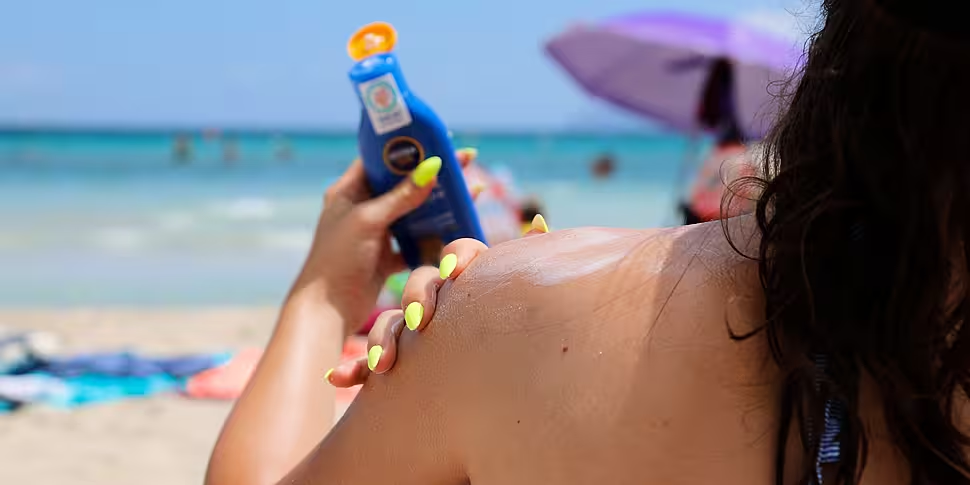It's important that people are 'sun smart' and consider using sunscreen even on cloudy summer days in Ireland, a skin expert says.
Dermatology nurse Selene Daly spoke to The Pat Kenny Show about the importance of protecting yourself against the sun - and why you can get sunburn even on cloudy days.
She was speaking as Ireland continues to enjoy warmer weather, with Met Éireann forecasting temperatures as high as 23 or 24 degrees over the weekend.
Those kind of temperatures are nothing compared to what you'd experience in Spain or France on a sunny day - but Selene says UV levels during the Irish summer can be similar to those two countries.
She observed: “It’s warmer in Spain and France because of the infrared [rays] - that creates the heat.
"But what we’re trying to protect against is UVA and UVB rays, because they’re the things that cause skin cancer: not the heat, not the sunshine. That’s why on a cloudy day you can still burn.”
Selene explained that there are two main types of sunscreen.
There's the physical blocker or mineral sunscreen, which "acts like a suit of armour" and protects against UV rays when spread or sprayed over exposed skin.
Then there are chemical blockers, which "soak up UV rays" and stop them from being absorbed by the skin.
 Picture by: Sina Schuldt/DPA/PA Images
Picture by: Sina Schuldt/DPA/PA ImagesSome recent stories - spread widely across social media - have claimed that some chemicals in sunscreens are actually dangerous for the body.
However, Selene noted that these messages seem to be based on a 2019 study by the US FDA looking at the chemicals used in sunscreens.
The research looked at people who used sunscreen every two hours over a period of weeks, and it found the body does absorb some of the chemicals.
However, Selene explained: “Importantly, the evidence didn’t show these chemicals were unsafe.
“There’s no danger shown yet, and if you are concerned about chemicals choose a physical sunscreen instead.”
The EU has its own rules around sunscreen, including banning the use of the description 'sun block' - as no sunscreens block UV rays out completely.
Selene said sunscreen instead acts like a 'filter' that helps lower the amount of UV rays damaging the skin.
In terms of picking a sunscreen, she advised: "It’s really important that we have SPF 30 or higher - 30 or 50 - and it provides broad-spectrum coverage, of both UVA and UVB.”
Companies also are no longer allowed used descriptions like 'SPF 100' when selling their products - something which again a result of the EU rules in place since the mid-2000s.









